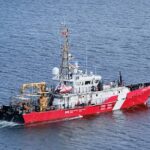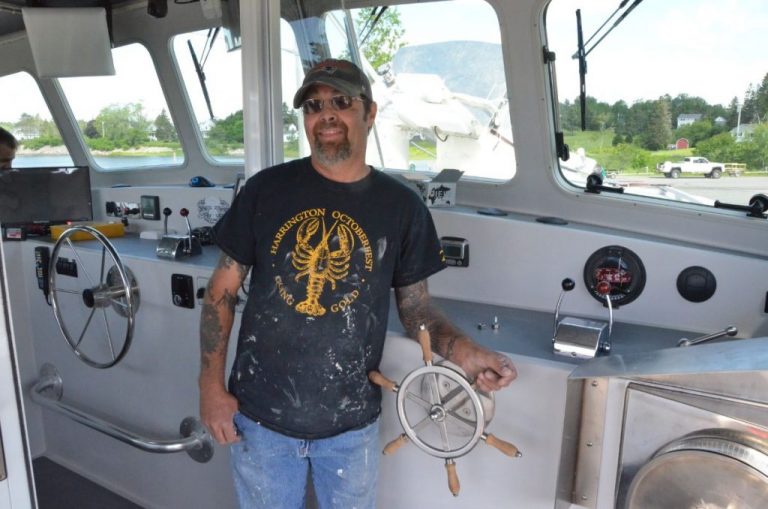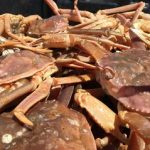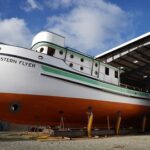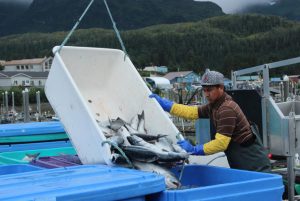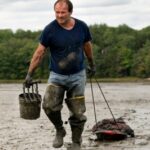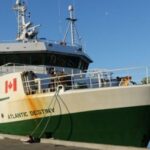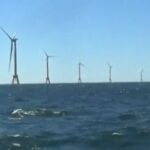Daily Archives: June 23, 2015
Update: No Fukushima Contamination Detected in Pacific Salmon Off North American Coast
 The Integrated Fukushima Ocean Radionuclide Monitoring (InFORM) project is a network involving academic, governmental, and non-governmental organizations, as well as citizen scientists. InFORM is acquiring data to support a thorough radiological impact assessment for Canada’s west coast stemming from the Fukushima Dai-ichi nuclear power plant (FD-NPP) accident, and to effectively communicate these results to the public. Read the rest here 16:00
The Integrated Fukushima Ocean Radionuclide Monitoring (InFORM) project is a network involving academic, governmental, and non-governmental organizations, as well as citizen scientists. InFORM is acquiring data to support a thorough radiological impact assessment for Canada’s west coast stemming from the Fukushima Dai-ichi nuclear power plant (FD-NPP) accident, and to effectively communicate these results to the public. Read the rest here 16:00
U.S. Marshals seize FV Westward, moored in Boothbay Harbor for the last two years
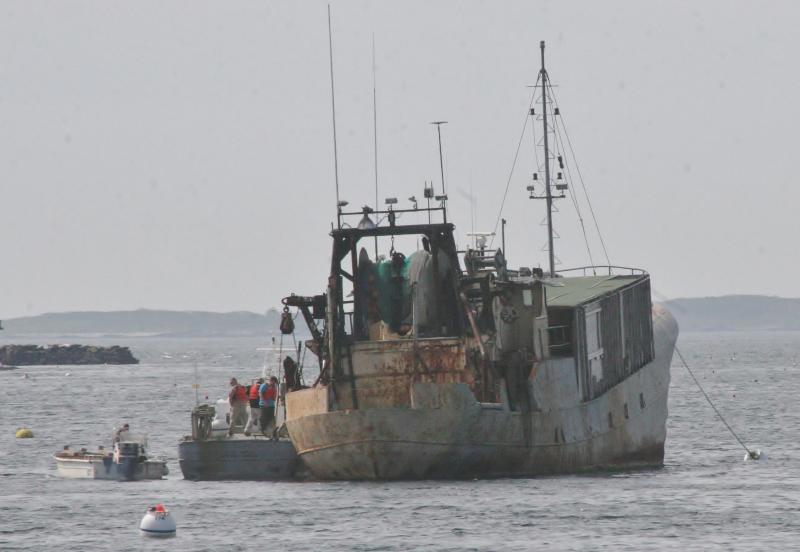
Maine’s elver fishery – Smaller catch, bigger value – 2015 haul nets fishermen an average of $2,172 per pound
 Maine’s 920 licensed harvesters caught 5,242 pounds of elvers during the 10-week season, which ended May 31. That catch was down significantly from 2014 when 9,688 pounds were landed. The average price per pound for elvers jumped from $874 in 2014 to $2,172, the department said. This year’s quota was set by the Atlantic States Marine Fisheries Commission and will remain unchanged through 2017. The commission is expected to reassess the quota in 2018. Read the rest here 14:19
Maine’s 920 licensed harvesters caught 5,242 pounds of elvers during the 10-week season, which ended May 31. That catch was down significantly from 2014 when 9,688 pounds were landed. The average price per pound for elvers jumped from $874 in 2014 to $2,172, the department said. This year’s quota was set by the Atlantic States Marine Fisheries Commission and will remain unchanged through 2017. The commission is expected to reassess the quota in 2018. Read the rest here 14:19
NOFish Announces Area Closures for Common Pool Northeast Groundfish Fishery
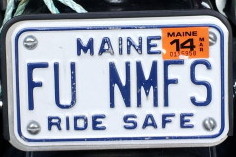
Disaster aid belongs to the fishing industry – It’s no wonder the industry views NOAA with suspicion
NOAA has in recent weeks been casting about for a pool of money to tap for its controversial onboard fishing  . Efforts to make fishermen pay directly for the program — yet another unfunded federal mandate — have so far fallen short.,,, states sill have about $10 million in the ‘third bin,’” John Bullard said. “(Monitoring) would be an eligible use of those funds.” Let us not forget one reason NOAA wants to expand its lobster monitoring program is because it has to spend the money it has budgeted for that plan. Read the rest here 13:25
. Efforts to make fishermen pay directly for the program — yet another unfunded federal mandate — have so far fallen short.,,, states sill have about $10 million in the ‘third bin,’” John Bullard said. “(Monitoring) would be an eligible use of those funds.” Let us not forget one reason NOAA wants to expand its lobster monitoring program is because it has to spend the money it has budgeted for that plan. Read the rest here 13:25
Halibut Bycatch: a Disappointing Update
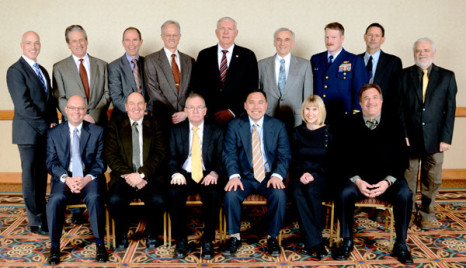 On June 9th (10th?), Alaskan halibut fishermen, who have seen their individual quotas cut by up to 70% over the last ten years gathered to watch the North Pacific Fisheries Management Council (NPFMC or North Pacific Council) vote on reduced halibut bycatch caps for trawl fleets fishing in the Bering Sea. Fact sheets from ALFA, stories from KCAW, NPFMC’s Environmental Assessment, and our previous blog post all describe the conservation fight over halibut, but here are a few crucial bullet points as a reminder: Read the rest here 12:03
On June 9th (10th?), Alaskan halibut fishermen, who have seen their individual quotas cut by up to 70% over the last ten years gathered to watch the North Pacific Fisheries Management Council (NPFMC or North Pacific Council) vote on reduced halibut bycatch caps for trawl fleets fishing in the Bering Sea. Fact sheets from ALFA, stories from KCAW, NPFMC’s Environmental Assessment, and our previous blog post all describe the conservation fight over halibut, but here are a few crucial bullet points as a reminder: Read the rest here 12:03
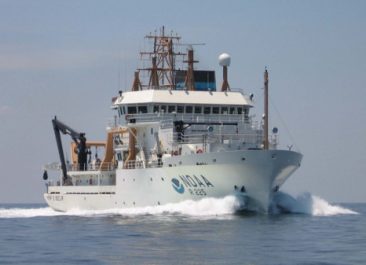
New England Stock Assessments – If it’s the same, it will never be different, Don Cuddy
We are having a serious problem in New England with the performance of the models used in fishery management. To remedy a situation that, along with some other factors, has led to the current crisis in the groundfish industry, we need new data … and maybe we need new models.,, Getting better data is a theme familiar to anyone with connections to the fishing industry in New England. It is central to the mission at the Center for Sustainable Fisheries and was the focus of the forum CSF sponsored at the New Bedford Whaling Museum in May. Read the rest here 09:03
Aussie Fishermen donate lucrative catch to Melbourne Museum
 James Owen and his crew have saved the elusive sea monster from the cooking pot, and have earned praise by donating it to science instead. “I’ve got a high regard for the skipper in his initiative in contacting the museum. “Obviously, he saw that it was far more valuable as a museum specimen than anything he could have made some money off of, and that’s his likelihood. Fish is how he makes his living. “Those fisherman were as much interested in conservation, I think, as the normal person in the street, if not more so.” More photo’s, Read the rest here 07:06
James Owen and his crew have saved the elusive sea monster from the cooking pot, and have earned praise by donating it to science instead. “I’ve got a high regard for the skipper in his initiative in contacting the museum. “Obviously, he saw that it was far more valuable as a museum specimen than anything he could have made some money off of, and that’s his likelihood. Fish is how he makes his living. “Those fisherman were as much interested in conservation, I think, as the normal person in the street, if not more so.” More photo’s, Read the rest here 07:06






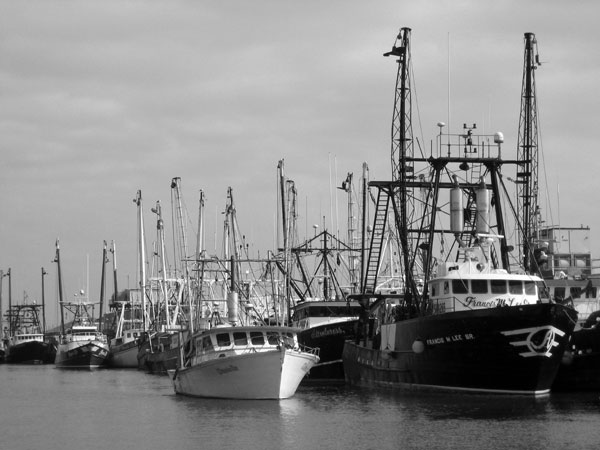 The Christie Administration announced that 266 fishing-related businesses will share more than $2.1 million in federal grants to help them recover some costs resulting from damages sustained as a result of Superstorm Sandy. The grant program focused on helping smaller businesses. Owners of bait-and-tackle shops, commercial dealers, commercial fishermen, for-hire party and charter boat operators, marinas and those involved in shell-fish aquaculture businesses were eligible to apply to the DEP for grants of up to $10,000 to help offset,,,
The Christie Administration announced that 266 fishing-related businesses will share more than $2.1 million in federal grants to help them recover some costs resulting from damages sustained as a result of Superstorm Sandy. The grant program focused on helping smaller businesses. Owners of bait-and-tackle shops, commercial dealers, commercial fishermen, for-hire party and charter boat operators, marinas and those involved in shell-fish aquaculture businesses were eligible to apply to the DEP for grants of up to $10,000 to help offset,,, 


























